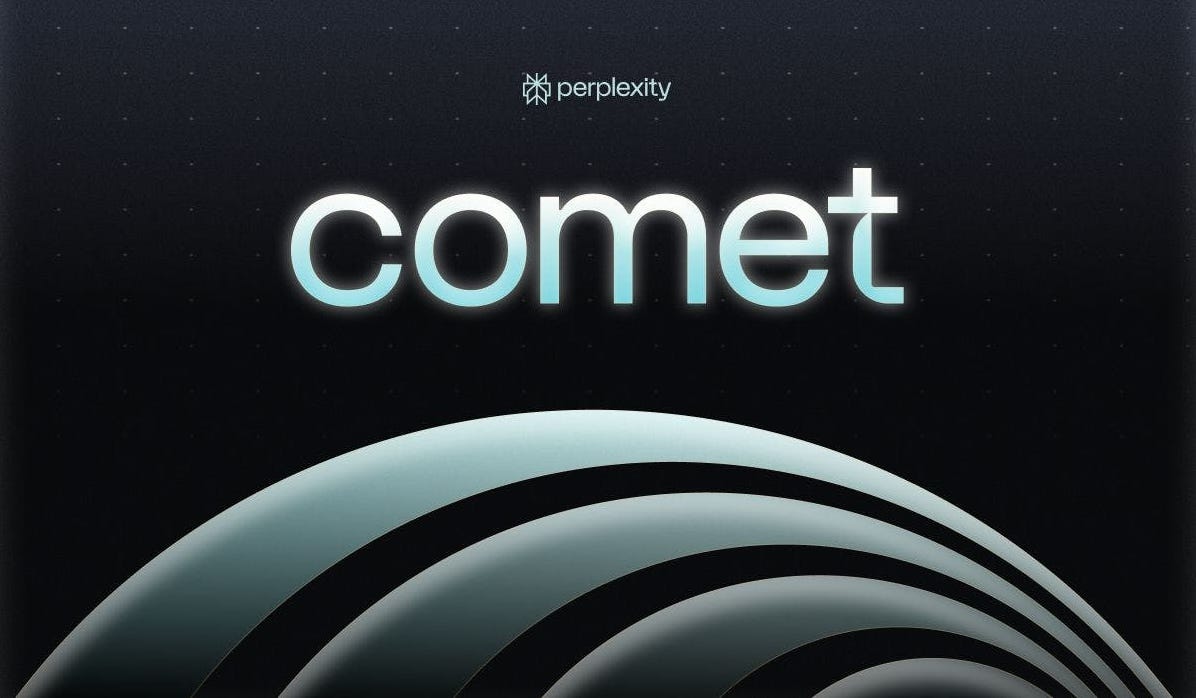Perplexity’s Comet Browser: Impressive AI Integration with Room for Improvement
Perplexity AI launched its Comet browser globally in July 2025 to paid users, promising to revolutionize web browsing through deep AI integration. After months of waitlist exclusivity, the browser is now free for all users, positioning itself as the first truly AI-native browsing experience. But does it deliver on that ambitious promise?
Comet builds on Perplexity’s strength as a conversational search engine that provides direct, cited answers rather than link lists. The company has carved out a niche by offering real-time, source-backed responses using advanced language models like ChatGPT, distinguishing itself from traditional search engines drowning in both human and AI-generated content.
The browser extends this philosophy into a complete browsing experience. Built on Chromium for compatibility, Comet integrates the Perplexity Assistant into every tab, enabling users to summarize pages, automate tasks, and interact with websites through natural language commands. The AI maintains contextual awareness across browsing sessions, remembering your history and active projects to provide personalized assistance.
Comet’s “agentic browsing” capabilities set it apart from competitors. While Chrome offers Gemini integration and Edge includes Copilot, these feel like add-ons rather than core features. Comet’s AI can draft email replies, organize tabs by project, manage online shopping, and handle multi-step research tasks from simple prompts. The browser includes “Discover” for personalized content recommendations and “Spaces” for collaborative project management.
The productivity focus extends to specialized tools for budgeting, investment tracking, trip planning, and sports updates, all powered by Perplexity’s answer engine and accessible through the sidebar. This integration addresses the growing problem of low-quality web content by partnering with major publishers to prioritize trustworthy sources.
However, early reviews reveal notable limitations. PC Gamer and other tech publications highlight performance concerns, with Comet consuming 15-20% more RAM than Chrome. The AI occasionally hallucinates on complex tasks, and the extensive user tracking required for personalized features raises privacy concerns.
The search experience presents another challenge. While Perplexity excels at answering specific questions with cited sources, Google remains superior for quick image searches or video discovery. Users seeking visual content often need explicit instructions to get relevant results from Perplexity, whereas Google’s image and video tabs provide immediate access to multimedia content.
This limitation extends to general web discovery. Google’s strength lies in its ability to surface unexpected but relevant results through its vast index and sophisticated ranking algorithms. Perplexity’s focus on direct answers, while valuable for research, can feel restrictive when exploring topics broadly or seeking inspiration.
The browser’s Gmail and Google integration showcases both its potential and current limitations. Comet can automate email management and calendar tasks effectively, but this requires granting extensive account access that many users find concerning. The AI’s contextual awareness is impressive, but the privacy trade-offs may not appeal to security-conscious users.
For research-heavy workflows, Comet’s integrated Perplexity AI offers genuine value. The ability to summarize articles, compare sources, and maintain context across multiple tabs streamlines academic and professional research. The citation-backed responses provide transparency that traditional search engines lack.
But for general browsing, established alternatives like Brave may serve most users better. Brave offers robust privacy protection, ad blocking, and familiar performance without the experimental nature of AI-first browsing. The browser’s focus on user privacy contrasts sharply with Comet’s data-hungry approach to personalization.
Comet represents an interesting glimpse into the future of web browsing, where AI assistants become integral to online navigation. The technology works well for specific use cases, particularly research and productivity tasks. However, the browser feels like an early-stage product that prioritizes innovation over polish.
The question is whether users want their browser to be an AI agent or simply a reliable gateway to the web. Comet makes a compelling case for the former, but its current limitations suggest most users aren’t ready to abandon their existing browsing habits.
As AI integration becomes standard across all browsers, Comet’s early mover advantage may prove valuable. But for now, it serves best as a specialized tool for research-intensive work rather than a complete Chrome replacement.
What do you think about AI-native browsing? Does Comet’s integrated approach appeal to you, or do you prefer keeping AI assistance separate from your main browser?
Watch my AI videos on YouTube here.
Follow my AI Writer X account here.


Great insights here! I also write weekly AIversity newsletters, sharing practical tips and the latest updates from Mastering Perplexity AI to exploring Comet Browse and more. If you’re passionate about staying ahead in AI, feel free to check out my articles too we’re building an active community of AI enthusiasts! Always excited to connect and exchange ideas with fellow writers.
Thank you for offering us an enhanced user experience.